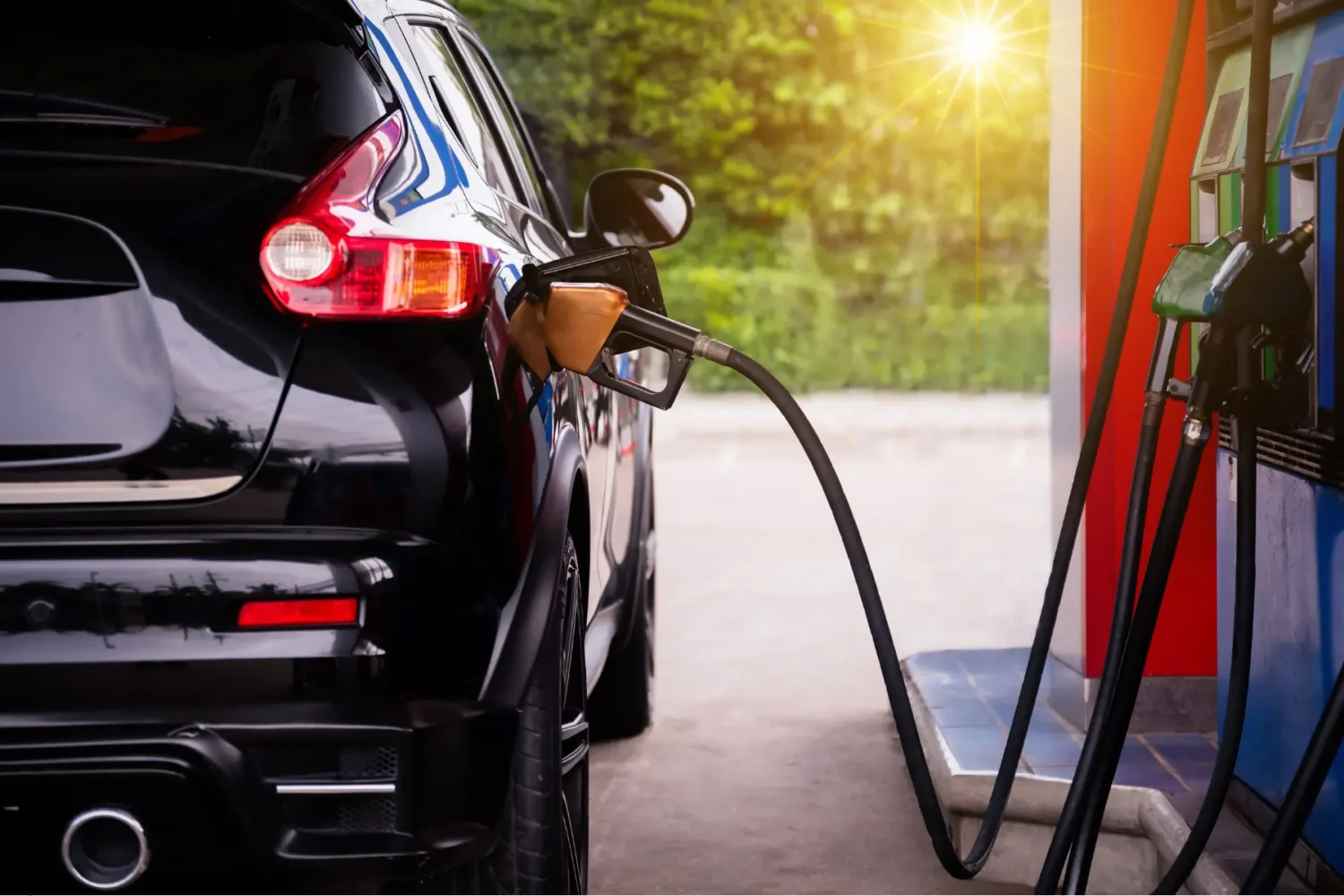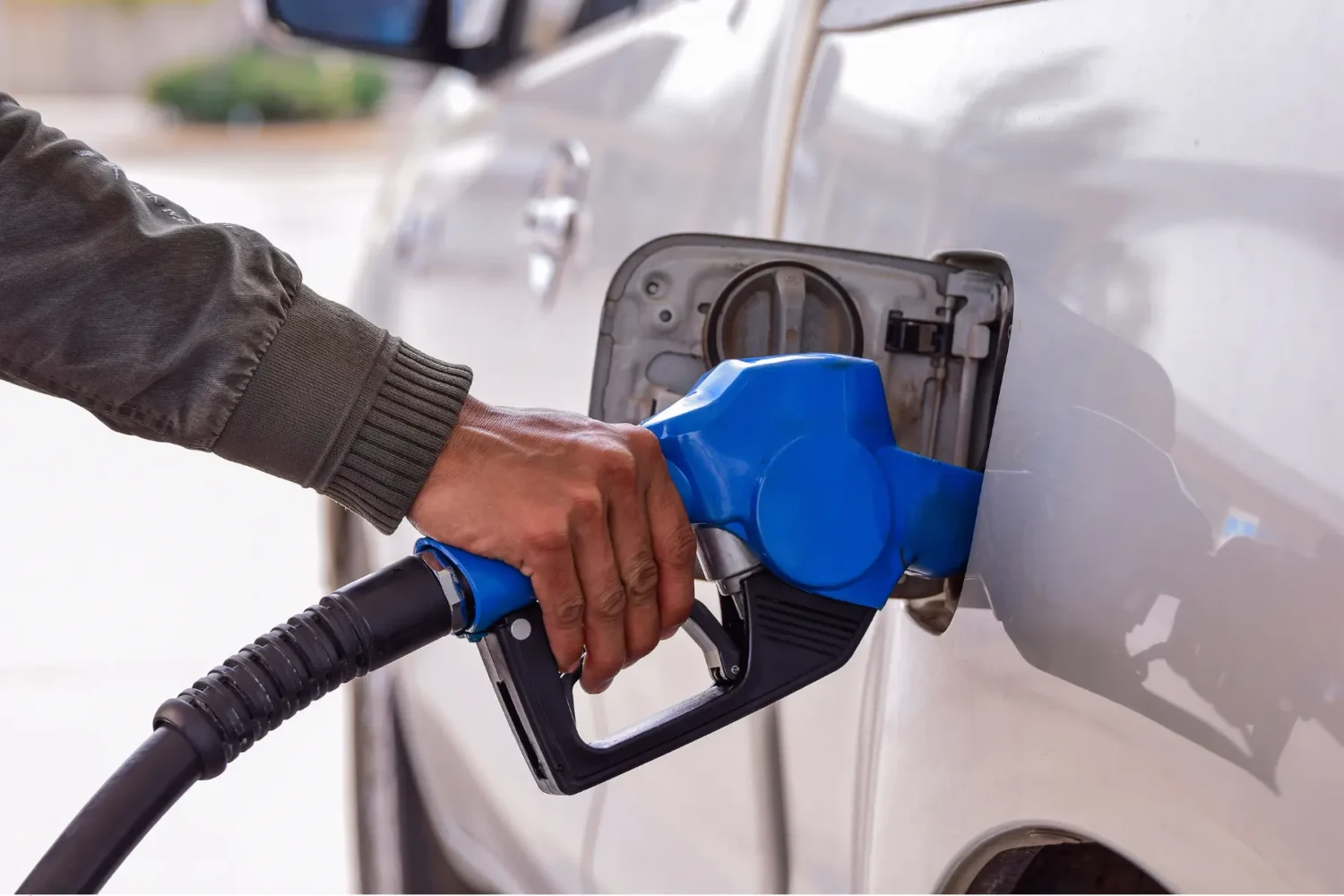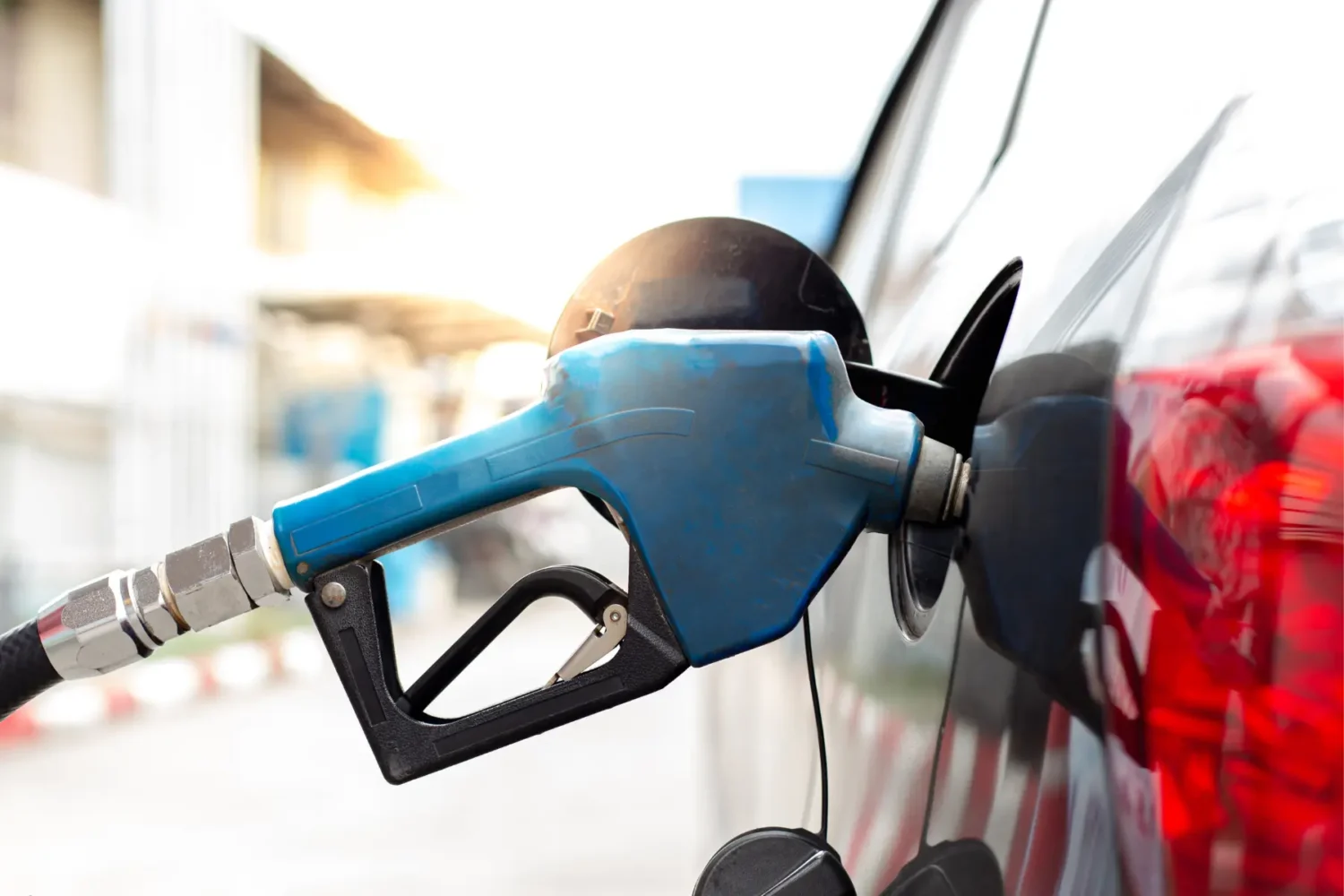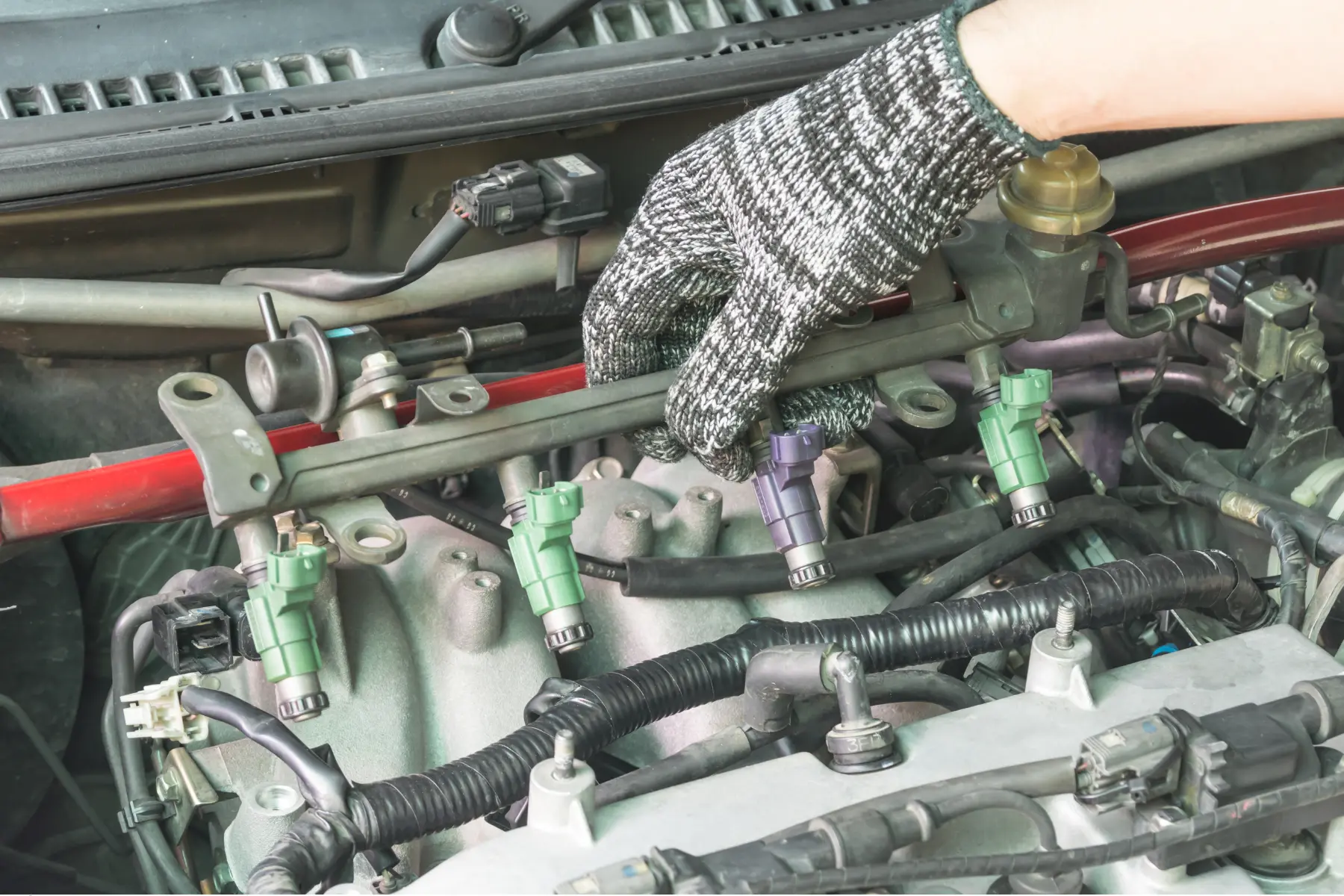Car fuel system basics are essential for the longevity and efficiency of your vehicle. This system is responsible for storing and supplying fuel to the engine, which is crucial for the vehicle’s operation. Regular maintenance ensures the fuel is efficiently utilized, improving your car’s overall performance and fuel economy. Neglecting this part of your vehicle can lead to increased fuel consumption and a higher likelihood of vehicle breakdowns, which can be inconvenient and expensive to repair.

Types of Car Fuel Systems
Carbureted Fuel Systems
In this setup, a carburetor mixes the air and car fuel manually based on the engine’s demand. This mixture is then sent into the engine’s combustion chamber. The simplicity of carburetors makes them less expensive and easier to maintain. However, they are less efficient than modern fuel injection systems, especially in terms of fuel economy and emissions control. Carburetors are now mostly found in older vehicles and some types of motorcycles and small engines.
Fuel Injection Systems
Carburetors have mostly been replaced with fuel injection systems in contemporary automobiles. These systems use injectors to deliver fuel directly into the engine’s cylinders or intake manifold, which is controlled electronically for precise fuel management. This results in better fuel efficiency and lower emissions. The evolution of fuel injection technology has brought about improvements such as fuel injector function in cars, enhancing the atomization and timing of fuel delivery, which significantly boosts engine performance and efficiency.
When comparing carburetor vs. fuel injection systems, the latter often comes out on top for most modern applications. Fuel injection systems provide improved fuel efficiency, enhanced performance, and lower emissions. While carburetors are simpler and cheaper to repair, they cannot match the precision of fuel injection systems, which adjust the fuel mixture based on various engine parameters, resulting in better overall vehicle performance.
Diesel vs. Gasoline Fuel Systems
Discussing diesel vs gasoline car fuel systems reveals distinct differences. Diesel engines operate through compression ignition, which relies on high compression ratios to generate enough heat within the cylinder to ignite the fuel without the need for a spark plug. This high-compression setup means that diesel fuel systems must be designed to withstand the increased pressure and temperatures involved in the ignition process. These also use a turbocharger in many cases to enhance air intake, which helps improve power output and fuel efficiency by pushing more oxygen into the engine’s combustion chamber. In contrast, gasoline engines rely on spark ignition, which means they use a spark plug to ignite the air-fuel mixture. The need for spark ignition in gasoline engines results in different design considerations, such as fuel injectors focused more on atomizing the fuel for even distribution with the air. Consequently, gasoline fuel systems generally emphasize precision mixing and less robust structural requirements compared to diesel systems.
Another notable difference between these two systems is how each responds to temperature changes and environmental conditions. Diesel engines, due to their high compression and lack of spark plugs, can have a tougher time starting in cold weather. Diesel fuel thickens in colder temperatures, which can make it harder for the engine to combust fuel. To counteract this, diesel engines often use glow plugs to preheat the combustion chamber, facilitating ignition in cold conditions. Diesel fuel systems may also incorporate heating elements in the fuel lines to keep fuel viscosity optimal for engine performance in lower temperatures. On the other hand, gasoline engines typically have fewer issues starting in the cold due to the spark ignition process and lower compression requirements. However, gasoline fuel systems must be equipped with sensors and components that optimize air-fuel ratios across varying temperatures to maintain performance and emissions standards. Modern gasoline engines use electronic fuel injection (EFI) systems that adjust the fuel injection timing and volume in response to temperature changes, ensuring a stable engine start and efficient fuel use.
Components of a Car Fuel System
Types of Car Fuel Injectors
There are various types of fuel injectors, each tailored for specific engine requirements and evolving in complexity to keep up with technological advancements. From single-point injectors in older systems to the highly efficient direct injectors used today, each type offers unique benefits suited to different engine designs and performance goals. Below is a list:
- Single-Point or Throttle Body Injectors: Commonly found in older fuel systems, single-point injectors, were developed to replace carburetors and add a level of precision with electronic control. These injectors spray fuel into the throttle body, which is positioned above the intake manifold. While they operate similarly to carburetors, they provide more accuracy in fuel delivery by relying on electronic inputs. This system functions by distributing fuel to all cylinders through a single injector, making it simpler and less costly to produce and maintain than multi-point systems. Although it doesn’t offer the same level of efficiency as newer systems, single-point injectors are an affordable choice for older engines and are easier to service. Their straightforward design provides a step up from carburetors but doesn’t reach the fuel atomization levels of modern injectors.
- Port or Multi-Point Fuel Injectors: Multi-point injectors assign an individual injector to each intake valve, offering a direct fuel path to each cylinder. This approach enhances atomization, where fuel is broken down into smaller particles, ensuring an even mixture of air and fuel for better combustion. The result is more efficient fuel consumption and improved power output, as each cylinder receives an optimized amount of fuel. Additionally, this setup reduces the risk of fuel pooling and cylinder flooding, problems that can occur with single-point systems. The precise fuel distribution with multi-point injectors makes it ideal for modern engines focused on balancing power and fuel economy, giving drivers a smoother and more responsive performance overall.
- Sequential Fuel Injectors: Each injector operates in sequence, spraying fuel just before the intake valve opens for that particular cylinder. This precise timing aligns with the engine’s firing order, allowing each cylinder to receive fuel at the optimal moment for improved combustion. This timing not only increases fuel efficiency but also provides a more consistent engine response, particularly during acceleration. Sequential injectors contribute to lower emissions and better fuel management, as they minimize fuel waste by delivering only what is needed when it’s needed.
- Direct Injectors: At the forefront of fuel injection technology, direct injectors spray fuel directly into the combustion chamber, bypassing the intake valve altogether. This process allows fuel to be delivered at extremely high pressures, which leads to finer atomization and improved combustion control. Direct injection systems offer the highest level of efficiency, as the fuel is used to its maximum potential within the cylinder. This method supports both increased engine power and lower emissions, making it a popular choice in high-performance and eco-friendly vehicles.
Each type of fuel injector contributes uniquely to engine performance, with technology progressing from simple single-point injectors to the sophisticated direct injectors seen today. Understanding these types and their functions helps to appreciate the strides made in automotive engineering toward cleaner, more powerful, and more efficient vehicles.
Fuel Pump
Depending on the type of fuel system, the fuel pump can be either mechanical or electronic. Mechanical pumps are typically found in older models and are driven by the engine’s motion to pump fuel from the tank to the carburetor. In contrast, modern vehicles usually feature electronic pumps located in or near the fuel tank, which use an electric motor to ensure a constant fuel supply under high pressure to meet the engine’s demands. This is crucial for the proper function of fuel injectors, especially in systems that rely on car fuel injection system maintenance to prevent performance degradation.

Fuel Filter
The fuel filter is critical in protecting the engine from contaminants that can clog the fuel injectors and reduce engine performance. Positioned between the fuel pump and the injectors, it traps particulates and impurities before they can enter the engine. Regular replacement of the fuel filter is vital to maintain optimal fuel flow and engine health. Ignoring filter maintenance can lead to problems such as reduced fuel pressure, poor acceleration, and decreased fuel efficiency. Proactively changing the fuel filter as part of regular fuel system inspection can prevent expensive repairs and prolong the life of the engine.
Fuel Lines and Connections
These components must be robust and well-maintained to avoid leaks, which can be dangerous and reduce the efficiency of the fuel system. Over time, fuel lines can degrade or become damaged, which can lead to leaks. Regular checks for wear, damage, or corrosion can help ensure that fuel lines and connections continue to perform their critical function safely. Ensuring all connections are secure and leak-free is also crucial for maintaining system integrity and optimal performance.
Common Signs of Fuel System Issues
Symptoms of a Failing Fuel Pump
A failing fuel pump may manifest through a variety of symptoms, including a whining noise from the fuel tank, difficulty starting the vehicle, and a noticeable loss of power while accelerating or driving uphill. The engine might also sputter or stall at high temperatures as the damaged pump fails to supply enough fuel at the required pressure. Addressing these signs promptly can save significant repair costs and maintain the vehicle’s performance.
Symptoms of Clogged Car Fuel Filter
This essential component prevents contaminants from reaching the engine, where they could damage sensitive parts. Here’s a closer look at the signs indicating that a filter might need replacement:
- Starting Issues: When the fuel flow is limited, especially during ignition, the engine may crank multiple times without firing up or require several attempts before it starts. This issue is more noticeable in colder weather or when the vehicle has been idle for a long time, as the engine relies on a steady fuel supply for quick startups. If left unaddressed, repeated starting issues can strain the battery, leading to further complications.
- Idling Problems: When idling, the engine needs a steady, low flow of fuel to maintain consistent performance, but a clogged filter can prevent it from receiving adequate fuel. This causes fluctuations in engine power, resulting in rough idling and, in some cases, stalling altogether. Drivers may notice that the vehicle’s engine vibrates or surges while idle or that it stalls after stopping at a light. This symptom not only makes for an uncomfortable driving experience but can also signal that the engine is working harder than it should.
- Sputtering Under Load: When accelerating or driving up a hill, the engine demands more fuel to generate the required power. A clogged filter restricts this flow, causing the car to sputter, jerk, or hesitate under load. This sputtering sensation often becomes more apparent during quick accelerations, where the engine struggles to pull the fuel it needs. The restricted fuel supply interrupts the combustion process, leading to uneven performance and reduced power. In addition to being uncomfortable for drivers, sputtering under load can compromise safety, as sudden jerks or stalls can happen unexpectedly.
- Poor Fuel Economy: The engine’s fuel management system may also try to offset the issue by drawing in more fuel than usual, further reducing fuel efficiency. Drivers may notice they’re refueling more frequently or that their mileage per gallon has significantly decreased. Poor fuel economy not only raises fuel costs but can also indicate that the engine is operating inefficiently, potentially leading to wear on other components.
- Engine Misfires: A clogged filter disrupts the consistent fuel flow needed for complete combustion, leading to misfires that can cause shaking, jerking, or backfiring noises. This incomplete combustion can happen intermittently or frequently, depending on the severity of the blockage. Engine misfires not only cause discomfort but can also lead to serious engine damage if ignored. When the engine receives less fuel than needed, the air-fuel mixture becomes imbalanced, causing misfires. In severe cases, misfiring can damage the catalytic converter and other components.
Recognizing these symptoms and addressing them with car fuel filter replacement tips can prevent long-term damage and costly repairs. Keeping an eye on fuel filter health is a simple yet effective step in regular vehicle maintenance.
Fuel System Maintenance Tips
Cleaning Fuel Injectors
Cleaning your fuel injectors can be done using a variety of methods, including adding a quality fuel injector cleaner to your fuel tank, which can help break down deposits during normal engine operation. For more thorough cleaning, professional service is recommended, which typically involves using specialized equipment to remove all traces of build-up.
Choosing High-Quality Fuel
Lower-quality fuels may contain higher levels of impurities that can lead to the accumulation of deposits within the fuel system, including the injectors and combustion chamber. These deposits can degrade engine performance, increase emissions, and reduce fuel efficiency. To prevent these issues, opt for reputable fuel brands that offer additives designed to clean and protect the engine as the fuel is burned, which helps maintain the cleanliness and efficiency of the fuel system.

Understanding the fundamentals of how to clean fuel injectors is crucial for reliable vehicle operation. By recognizing the early signs of system issues and addressing them promptly, you can ensure that your vehicle remains efficient and dependable. Embracing these maintenance and car fuel pump troubleshooting tips will help you minimize the risk of fuel system failures and extend the lifespan of your car. With the right care, your vehicle’s fuel system can deliver optimal performance and fuel efficiency, making every journey smooth and enjoyable.




